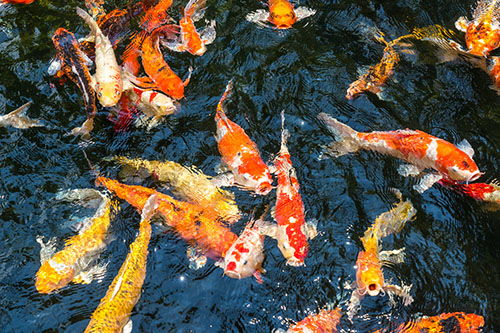Raising Fish in a Koi Pond
Aug 10, 2021

Koi ponds add a peaceful touch to any outdoor space, but they can be used for more than just aesthetics. Home-raised koi fish, as well as carp, tilapia, and trout are an excellent source of meat for someone who is looking to become more self-sufficient, and raising them yourself will allow you to better control the quality and nourishment you receive from your meal.
Here are a few tips for a successful start in managing your koi pond:
We hope by now you are ready to add ‘fish farmer’ to your homesteading resume! For additional advice, fish food, and other supplies, visit your local Co-op.
For more content like this, check out the latest issue of the Cooperator.
Here are a few tips for a successful start in managing your koi pond:
- Plan your pond’s location
- Add water
- Create a healthy environment
- Feed your fish appropriately
We hope by now you are ready to add ‘fish farmer’ to your homesteading resume! For additional advice, fish food, and other supplies, visit your local Co-op.
For more content like this, check out the latest issue of the Cooperator.